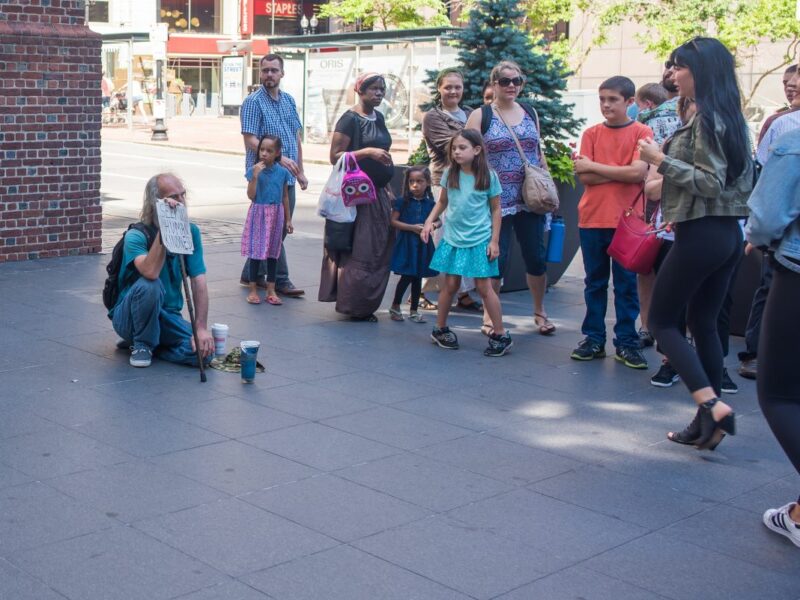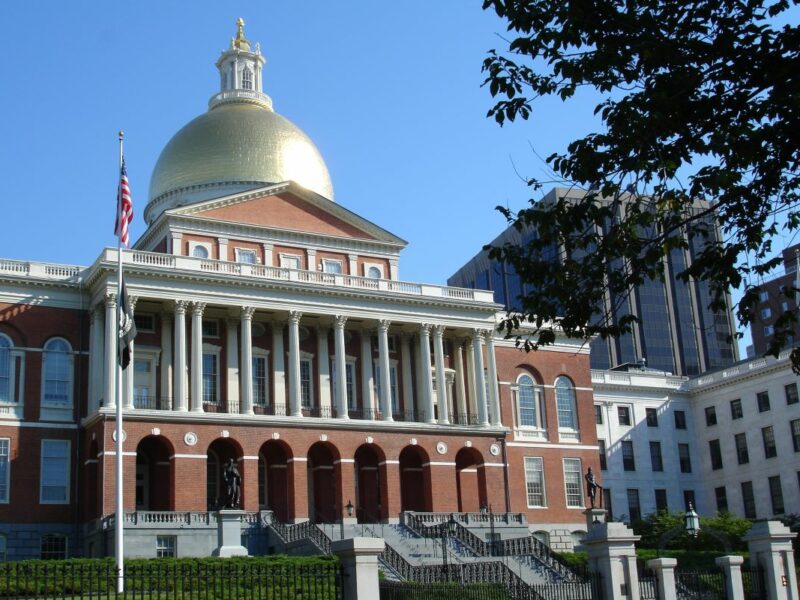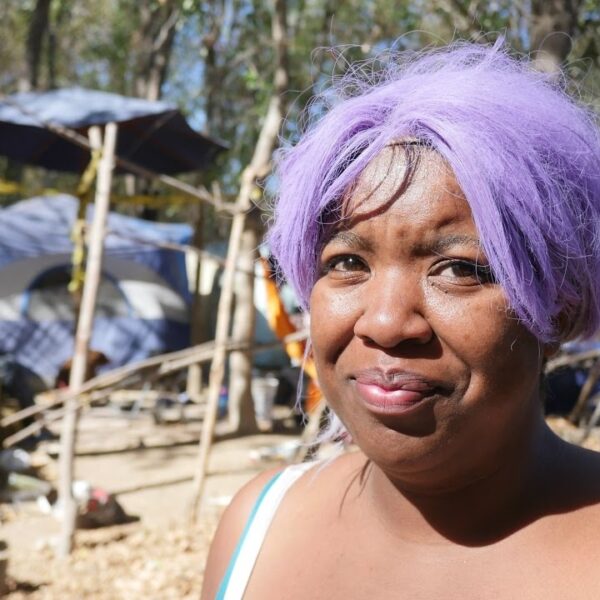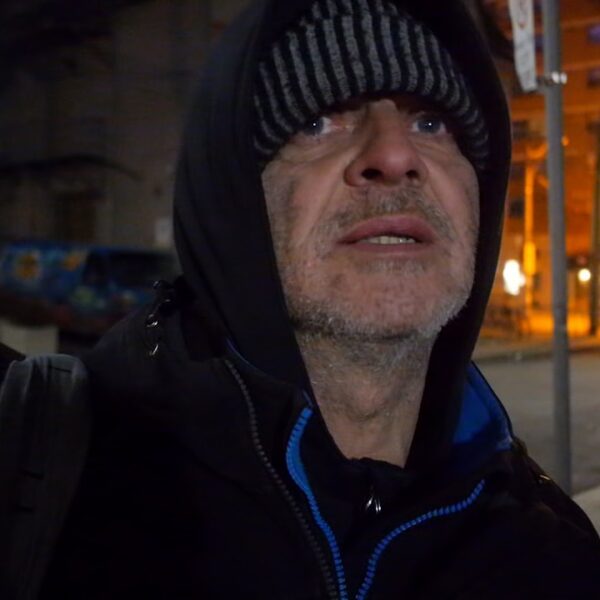New annual figures on homelessness have shown the profound inequality of homelessness in the United Kingdom. Results reveal Black people are three times more likely to experience homelessness than people from all other ethnicities combined. Why are Black people so disproportionately represented in homeless populations in the United Kingdom and elsewhere?
Black People Three Times as Likely To Experience Homelessness
The United Kingdom government’s annual statutory homeless report uncovered that 10.7% of people applying to councils for assistance with homelessness between April 2019 and March 2020 were Black. However, this is disproportionate as Black people only make up 3% of households in England.
According to the homeless charity Shelter, this inequality shows that one in 23 Black households became homeless or were threatened with homelessness compared to one in 83 households from all other races and ethnicities combined. Likewise, a quarter of the homelessness claims that local authorities received were from Black, Asian, and Minority Ethnic (BAME) people.
The figures from the report show that every eight minutes someone from a BAME background registers to a local council because they are either homeless or are threatened with homelessness.
Of the 288,470 applications for help from local authorities, white households accounted for 69.8%, even though 84.6% of all country properties are white.
In London, inequality was even more significant. A third of applications came from Black households in the capital, despite making up 12.4% of the city’s population. In comparison, white households made up 31.1% of applications, even though white households account for 58.9% of London.
It’s important to note that Asian people are underrepresented in homeless communities, even though they’re from a BAME background.
The 2019-2020 CHAIN data shows that Asian people make up 7% of the capital’s homeless population even though the Asian figure for London’s population is 18.5%.
Asian groups do not appear to be over-represented in homeless communities at all. But it’s also essential to note that Asian people are also under-represented amongst people being accepted as homeless by local authorities. The inequalities around ethnicity don’t translate across to rough sleeping in the way they do for statutory homelessness.
It’s also essential to note that these figures are different from the annual street count taken in England. The yearly street count doesn’t provide a figure for ethnicity as it would be too arbitrary. Rough sleepers are often hard to see when they’re being counted as they’re typically under blankets or are in sleeping bags. So, assessing the ethnicity of every person on the streets would be too challenging.
Race, Homelessness, and COVID-19
Due to the spread of COVID-19, the housing crisis is likely to worsen, along with the destructive inequalities in homelessness.
Black people are more likely to become homeless or live in cramped and overcrowded houses. This puts them at even greater risk of COVID-19. Right now, the government must act fast to protect vulnerable rough sleepers.
Currently, the UK government fails to prevent homelessness during COVID-19 because not enough is done to increase safe, decent, affordable housing. Through social housing, the government can offer a safe sanctuary during a frightening period.
People from a BAME background are also less likely to have heard of social security measures. This means they’re even more likely to be affected by COVID-19, both financially and concerning health.
The pandemic has shown how vulnerable communities are, especially homeless people from BAME groups. In addition, social justice system inequalities have likely worsened during the pandemic as well. The additional risk factors that BAME members face will make life even more challenging. Urgent action is required to remedy these problems.
The Link Between Race and Homelessness
There are many reasons why Black people are disproportionately represented in homeless communities.
In the United States, instructional racism leads to Black people being disproportionately represented in homeless groups. Most minority groups in the United States, particularly African Americans and Indigenous people, experience higher homelessness rates due to long-standing historical and structural racism.
From slavery to segregation, Black African Americans have been denied certain rights and socioeconomic opportunities compared to whites and other races. Other minority groups, like Indigenous and Latinx people, share similar experiences.
This inequality is a result of systemic discrimination. Today, the lingering effects of racism continue to influence disparities in areas that affect homelessness rates.
Deep poverty is a significant predictor of homelessness. Black people are overrepresented in poverty when compared to their representation in the population.
Systemic housing discrimination is another root cause of the current wealth gap between white and Black households. In the past, redlining practices prevented Black people from making economic investments, like mortgage and business loans in neighbourhoods where many people of colour lived. Redlining is a discriminatory practice making services out of reach for residents of specific areas based on race or ethnicity.
While redlining took place decades ago, the effects are still apparent today.
African Americans still disproportionately live in poverty-stricken areas or neighbourhoods that are unsafe. For example, these areas may expose residents to environmental toxins and offer limited access to quality care and services, nutritious food, and economic opportunities.
Typically, people who become homeless are likely to have lived in these kinds of neighbourhoods first. For most Black households, moving to areas with less crime, reduced environmental hazards, and access to services is challenging.
When Black people can move into safer neighbourhoods, they’re often shown fewer rental units and denied more leases in comparison to white households. Likewise, white people are typically offered lower rents, even though they’re more likely to have higher wages than Black people.
Deposits and other costs associated with moving in are often more negotiable for White people than Black people. This makes moving into a new flat or home more accessible and more affordable for white people than Black people.
It’s clear that efforts to end homelessness in the United Kingdom and in other countries around the world must address the huge range of issues that surround racial inequality. This includes the arrangement of affordable, safe, and stable housing for all, no matter what their race is.
Systems, services, programs, and individuals that aim to help people experiencing homelessness must consider the ways Black people and other ethnic minority groups are unfairly treated in the social justice system to make any substantial and forthcoming difference.













